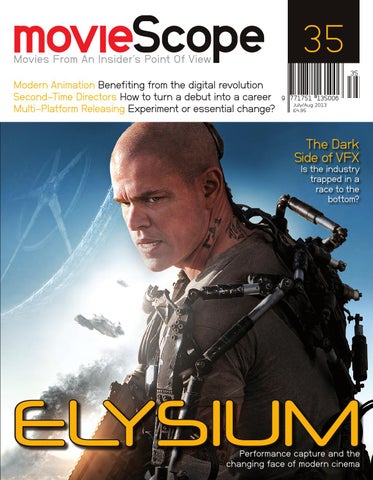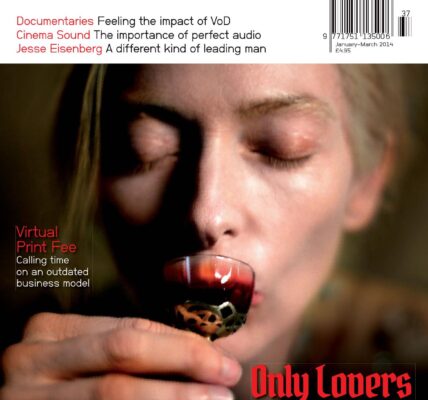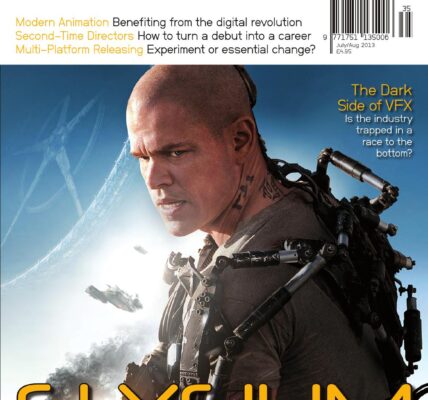Creative Screenwriting’s Danny Munso explains why, when approached correctly, a summer blockbuster can be a worthy addition to any writer’s resume…
The term ‘blockbuster’ sounds great. Truthfully, it’s what every film released each year aspires to be. Films tagged with the label are usually loud, full of action, feature tons of special effects and — most importantly from a studio’s point of view — make ungodly amounts of money. Yet the word also conjures up certain negative connotations: no characters; a vapid, thin plot; all action. Blockbusters are meant for audiences to escape into, not to provoke thought. Case in point: how many times have blockbusters won Best Picture Academy Awards? If we’re talking about big-budget, special effects laden films, the number is exactly three: Titanic (1997), Gladiator (2000) and The Lord of the Rings: The Return of the King (2003). Of those, only Gladiator was released during the summer.
So if you’re looking to write a summer blockbuster, I hope you’re not in it for the hardware, because you will certainly end up empty-handed. The past few years have, however, seen a major rise in quality for films released during summer months. Having a big-budget film on your resume as a screenwriter is no longer a reason for embarrassment at industry parties, in fact, it is often a target of envy among your peers. You can write a great movie AND make hundreds of millions at the box office? Who wouldn’t sign up for that?
If you were to trace the development of this phenomenon, there is no one particular film or year that turned the tide. The biggest reason has undoubtedly been a more discerning audience; viewers are beginning to look for higher quality from films. Some of this has to do with the fact that it’s more expensive than ever to take in a movie, particularly on the weekends. Some of it has to do with the fact that we have many more forms of entertainment demanding our attention. Whatever the reason, the audience factor is a large one.
This was proved to great effect in 2010. When Warner Bros pathetically tried to take advantage of the post-Avatar 3D boom and rushed Clash of the Titans into a 3D conversion that looked almost comical, audiences complained, deterring many other studios from doing the same. And when we were offered expensive fare like Prince of Persia and The A-Team, we politely said, ‘No thanks’.
Sure, audiences get it wrong sometimes — whoever is out there buying tickets to the third Transformers movie, I am talking to you — but, for the most part, we reward good filmmaking with our money. And if you are a screenwriter, you would be wise to take advantage of this fact.
If you’re looking to take your cues from a particular franchise, you may want to start with the biggest of them all: Warner Bros’ Harry Potter films. Dissecting the eight films is a fascinating study in filmmaking. While they were all destined to become box-office juggernauts, thanks to JK Rowling’s existing and loyal audience, few could have predicted the phenomenal course they would take.
The first film, Sorcerer’s Stone, dominated the box office, but you will have a hard time finding anyone who really enjoyed it. Though the task of adapting that particular novel and introducing the world was a difficult one, the filmmakers did not pull it off for a variety of reasons. The second film, Chamber of Secrets — also directed by Chris Columbus — was even worse. Then, rather shockingly, series producer David Heyman decided to change course, and he deserves credit for doing so. Columbus was removed from the franchise and the remaining films were directed by Alfonso Cuarón (Prisoner of Azkaban), Mike Newell (Goblet of Fire), and David Yates (Order of the Phoenix, Half-Blood Prince, and both parts of Deathly Hallows). Their styles were a much better fit for Rowling’s material, and gave it the weight the stories deserved. Audiences agreed, forgiving the first two missteps and coming out in record numbers. The problem with the first two movies was that they spoke down to the audience at times, not trusting the viewer would come along for the ride; they were unsure of themselves, unsure of the world they were trying to depict. Beginning with Cuarón, that went away, and the last six films in the franchise have been critically-lauded.
So for you as a screenwriter, there are easy lessons to take: be confident; be bold; and trust your audience. Viewers want to be whisked away to a land that doesn’t exist, and it is your job to take them there. More importantly, it is your job to make sure that when they get there, they enjoy themselves.
Which brings us to our next piece of advice for you writers. Please, by all means, don’t take yourselves too seriously. Know what you are writing: escapist fare that aspires to be good. It’s unlikely your epic about saving the world from invasion is going to change the planet for the better, so don’t even bother making the effort. Summer blockbusters are supposed to be fun, and it’s your job to keep it that way. If it’s possible, think back to the summer of 2003. Was there any movie more fun than Pirates of the Caribbean: The Curse of the Black Pearl? It might be hard to remember, because the three sequels (and counting!) it spawned gave most audience members migraines, thanks to their loose plot threads. But the very first film, talk about a movie that had a stigma attached to it. I know what I first thought when I heard there was going to be a movie based on a theme park ride — and a boring theme park ride at that. But, they nailed it. Everyone involved brought something to the table. Obviously Johnny Depp received a deserved amount of credit for his iconic portrayal of Captain Jack Sparrow, but screenwriters Terry Rossio and Ted Elliot’s script bordered on brilliant. There’s really no reason the film should have worked, but they wrote it with a winking nod to the audience and let us know that they had as much fun writing it as we were having, watching it unfold on screen.
Humour is an important tool for summer blockbusters to utilise. I was reminded of this while watching Thor, this year’s release about the Marvel superhero. Thor is not normally a film I would be interested in. A marginal comic-book character brought to life by a little-known actor? I can think of better films to see. But I heard it was a strong film, so I relented. Turns out, not only was Thor a good movie, it was damn funny!
In the film, Thor (Chris Hemsworth), a god, is cast down to Earth by his father, Odin (Anthony Hopkins). His brother betrays him and his banishment is an emotional scene; here is Thor, a broken man, sent down to a strange place. And what happens to him the second he lands? He is hit by a car. Maybe it sounds bad reading it in print, but on screen, it was the perfect antidote to the heavy-handed scene we just saw.
That’s the key; you need both of those scenes for the film to work so well. As a writer, it is your job to pay off big emotional moments for your characters. But if that’s all you do, it sounds like you’d be better suited to a period drama or romance. Thor succeeds because we were made to care about this guy that we didn’t know through the emotional moments, yet we were able to laugh with — not at — the characters for much of the film.
So when you sit down to write your blockbuster — the one we’ll be talking and writing about five years from now — remember to have fun but keep the material real and grounded. When we pay our admission fee, we don’t want our time wasted. We want great films that know how to show us a good time. It’s difficult, but when you write a movie that makes $300m at the box office, the pay-off will be worth it in more ways than one.
For more information on Creative Screenwriting Magazine and its new digital edition, visit www.creativescreenwriting.com. movieScope readers get a special 15% discount on a subscription by entering the coupon MOVIESCOPE in our shopping cart.











